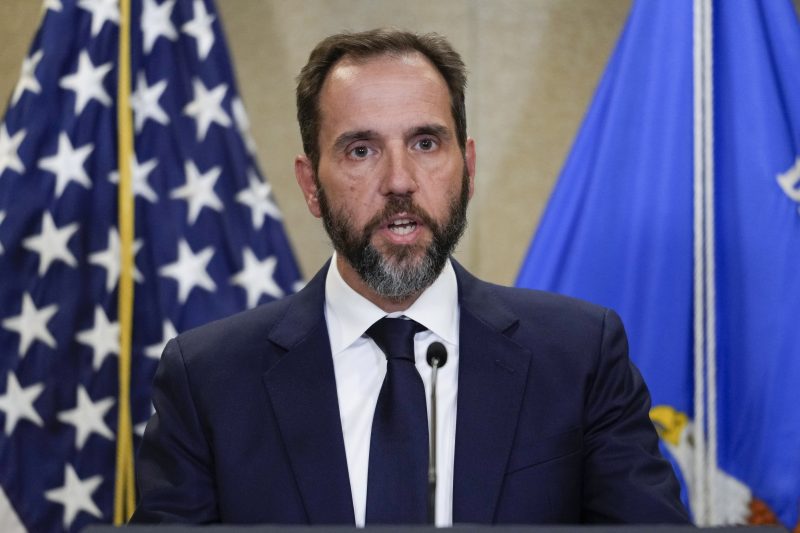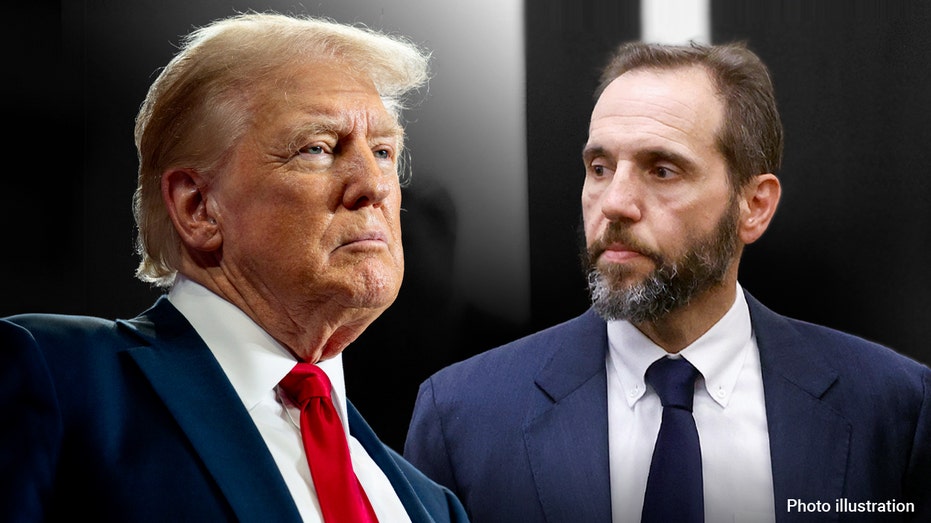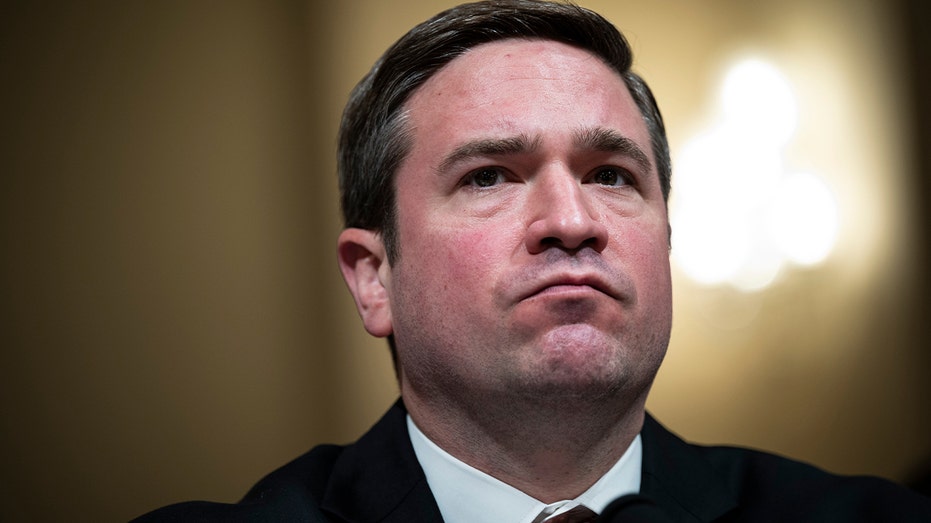A federal judge on Wednesday unsealed a key filing from special counsel Jack Smith’s updated election interference case against former President Donald Trump.
U.S. District Judge for the District of Columbia Tanya Chutkan unsealed Smith’s 165-page filing, in which Smith argues that Trump is not immune from prosecution for his alleged criminal scheme to overturn the 2020 election results. Smith submitted the document after the U.S. Supreme Court earlier this year ruled that a president is immune from prosecution for official acts.
“Although the defendant was the incumbent President during the charged conspiracies, his scheme was fundamentally a private one,” Smith wrote. “Working with a team of private co-conspirators, the defendant acted as a candidate when he pursued multiple criminal means to disrupt, through fraud and deceit, the government function by which votes are collected and counted — a function in which the defendant, as President, had no official role.”
The Supreme Court’s decision in Trump v. United States held that Smith could not prosecute Trump for the president’s alleged use of the Justice Department to look into unproven claims of widespread voter fraud in the 2020 election. In response, Smith filed an updated indictment that revised the allegations against Trump to fit within the scope of the Supreme Court’s decision.
JUDGE UNSEALS KEY FILING IN SPECIAL COUNSEL’S ELECTION CASE AGAINST TRUMP
In the unsealed filing, Smith told the court that Trump is not immune from the remaining allegations against him and laid out his case for why Trump “must stand trial for his private crimes.”
Trump has pleaded not guilty to all charges brought against him by Smith.
Here are five key details from the special counsel’s new filing, which is partially redacted:
In the filing unsealed Wednesday, Smith outlined a “factual proffer,” alleging Trump “resorted to crimes to try to stay in office” after losing the 2020 presidential election.
“With private co-conspirators, the defendant launched a series of increasingly desperate plans to overturn the legitimate election results in seven states that he had lost—Arizona, Georgia, Michigan, Nevada, New Mexico, Pennsylvania, and Wisconsin,” Smith wrote.
“His efforts included lying to state officials in order to induce them to ignore true vote counts; manufacturing fraudulent electoral votes in the targeted states; attempting to enlist Vice President Michael R. Pence, in his role as President of the Senate, to obstruct Congress’s certification of the election by using the defendant’s fraudulent electoral votes; and when all else had failed, on January 6, 2021, directing an angry crowd of supporters to the United States Capitol to obstruct the congressional certification.”
PROSECUTORS REQUEST INDEFINITE DELAY IN TRIAL FOR TRUMP ASSASSINATION ATTEMPT SUSPECT RYAN ROUTH
Smith claims that the “throughline of these efforts was deceit,” alleging Trump and co-conspirators engaged in a conspiracy to interfere with the federal government function by which the nation collects and counts election results, which is set forth in the Constitution and the Electoral Count Act (ECA); a conspiracy to obstruct the official proceeding in which Congress certifies the legitimate results of the presidential election; and a conspiracy against the rights of millions of Americans to vote and have their votes counted.”
Smith claims that several people close to Trump had told the former president his claims of election fraud were “bulls—.”
According to Smith, in one conversation, an unnamed Trump attorney had told Trump that the campaign was “looking into his fraud claims and had even hired external experts to do so, but could find no support for them.”
“He told the defendant that if the Campaign took these claims to court, they would get slaughtered because the claims are all ‘bulls—,’” the filing states, with Smith claiming that a lawyer discussed with Trump the investigations and “debunkings on all major claims.”
For example, the attorney allegedly told Trump that Georgia’s audit disproved claims that votes had been altered.
Smith also claims a senior campaign adviser who spoke with Trump on a “daily basis” and had “informed him on multiple occasions that various fraud claims were false” had complained that Trump was losing his election lawsuits because his lawyers could not back up false claims about the election.
“When our research and campaign legal team can’t back up any of the claims made by our Elite Strike Force Legal Team, you can see why we’re 0-32 on our cases,” the campaign adviser allegedly wrote.
“I’ll obviously hustle to help on all fronts, but it’s tough to own any of this when it’s all just conspiracy s— beamed down from the mothership.”
The filing details several alleged interactions between Trump and former Vice President Mike Pence in the days following the election.
Smith details a Nov. 7, 2020, call between Pence and Trump in which Pence allegedly “tried to encourage” Trump “as a friend” by reminding him that he “took a dying political party and gave it a new lease on life.”
Smith also details a private lunch between Trump and Pence on Nov. 12, 2020, when Pence allegedly gave Trump a “face-saving option.” That option, according to the filing, was “don’t concede but recognize the process is over.”
In another private lunch between Trump and Pence on Nov. 16, 2020, Pence allegedly tried to encourage Trump to accept the results of the election and run again in 2024. Trump is alleged to have responded, “I don’t know, 2024 is so far off.”
TRUMP TRIAL STEMMING FROM JACK SMITH’S PROBE DELAYED PAST ELECTION DAY
In yet another private lunch on Dec. 21, Pence allegedly “encouraged” Trump “not to look at the election ‘as a loss – just an intermission.’” Later that day in the Oval Office, Trump allegedly asked Pence for advice on what he should do. According to Smith, Pence said, “after we have exhausted every legal process in the courts and Congress, if we still came up short, Trump should ‘take a bow.’”
Additionally, Smith reveals that Trump allegedly showed little regard for Pence’s safety during the Jan. 6, 2023 riot at the U.S. Capitol after it became clear that Pence would not support his attempt to stop the certification of the election.
Smith alleges that an unnamed Trump aide, “upon receiving a phone call alerting him that Pence had been taken to a secure location… rushed to the dining room to inform the defendant [Trump] in hopes that the defendant would take action to ensure Pence’s safety.”
Smith writes that instead, after the aide delivered the news, Trump “looked at him and said only, ‘So what?’”
Smith alleges that Trump at multiple times showed complete disregard for those who informed him his claims of voter fraud were false, including Republican elections officials in states where Trump had claimed the election was stolen.
“Election officials, for instance, issued press releases and other public statements to combat the disinformation that the defendant and his allies were spreading,” Smith wrote. “At one point long after the defendant had begun spreading false fraud claims, [REDACTED], a White House staffer traveling with the defendant, overheard him tell family members that ‘it doesn’t matter if you won or lost the election. You still have to fight like hell.”
Smith goes on to assert that Trump and his legal team “repeatedly changed the numbers in their baseless fraud allegations from day to day,” and even “made up figures from whole cloth.”
TRUMP INDICTED A SECOND TIME IN ELECTION SUBVERSION CASE BROUGHT BY SPECIAL COUNSEL JACK SMITH
The special counsel claimed Trump “was on notice that there was no evidence of widespread election fraud in Arizona within a week of the election” and claimed Trump also “had early notice that his claims of election fraud in Georgia were false.”
By the time Trump spoke at his rally on Jan. 6, after Pence had refused to stop the certification of the election, Smith said the former president knew his “last hope” to overturn the results was “the large and angry crowd standing in front of him.”
“So for more than an hour, the defendant delivered a speech designed to inflame his supports and motivate them to march to the Capitol. The defendant told the crowd many of the same lies he had been telling for months—privately and publicly, including to the officials in the targeted states—and that he knew were not true.”
Smith argues that based on a “factbound analysis” of Trump’s conduct, the court should determine that the former president was not acting in his official capacity when he challenged the election results and is therefore not immune from prosecution.
“None of the allegations or evidence is protected by presidential immunity,” Smith wrote, asserting Trump’s “scheme was a private one.”
“He extensively used private actors and his campaign infrastructure to attempt to overturn the election results and operated in a private capacity as a candidate for office,” Smith claimed. “To the limited extent that the superseding indictment and proffered evidence reflect official conduct, however, the Government can rebut the presumption of immunity because relying on that conduct in this prosecution will not pose a danger of intrusion on the authority or functions of the Executive Branch.”
Fox News Digital’s Brooke Singman and Fox News’ Jake Gibson contributed to this report.





Leave a Reply